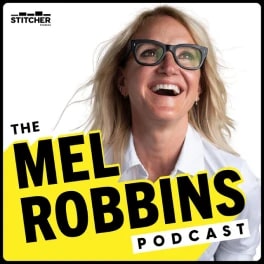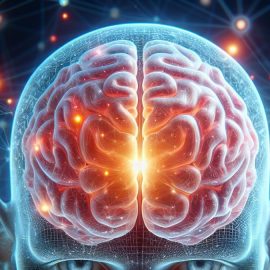

This article is an excerpt from the Shortform guide to "The Mel Robbins Podcast". Shortform has the world's best summaries and analyses of books, podcasts, and more.
Like this article? Sign up for a free trial here.
What is the intermittent fasting diet? What’s the science behind fasting?
In her eponymous podcast, Mel Robbins expresses her desire to understand the health effects of intermittent fasting. To do so, she gives a detailed overview of the diet and what it involves.
Discover more about the intermittent fasting diet to see if it’s right for you.
Understanding Intermittent Fasting: Foundations and Functioning
What is the intermittent fasting diet? The Mel Robbins Podcast explains that it revolves around abstaining from food for specific periods, focusing less on what or how much to eat, but rather on when to eat. Fasting provokes the body’s healing mechanisms by inducing a drop in blood sugar, catalyzing an array of healing responses.
Intermittent fasting is also a powerful tool against various health conditions like obesity, diabetes, cardiovascular diseases, neurodegenerative disorders, and cancer. Particularly, a 36-hour fast can have a significant impact on weight loss as it encourages the body to burn previously stored glucose and fat.
Metabolic Switching: The Science Behind Fasting
Intermittent fasting leads to ‘metabolic switching’, where the body fluctuates between two energy production pathways—a sugar-burning system that escalates blood sugar and a fat-burning system that lowers it. This metabolic flexibility forms the cornerstone of the benefits of intermittent fasting.
Ideally, continual fluctuation between these states occurs throughout the day, but this is compromised in those with poor metabolic health.
Fasting also generates a ketone that suppresses hunger and stabilizes blood sugar.
Historical Context: The Origins of Intermittent Fasting
The origins of metabolic switching and fasting can be traced back to our ancestors. Due to sparse food availability, they naturally experienced intermittent fasting.
This intrinsic practice amplified their brain function and vitalized their energy levels. These observations indicate our ancestors’ innate adaptability.
The Rise of Intermittent Fasting
Intermittent fasting has gained significant attention in recent years as a dietary approach with potential health benefits. This practice involves cycling between periods of voluntary fasting or reduced calorie intake and non-fasting over a specific timeframe. Various methods of intermittent fasting exist, including alternate-day fasting, periodic fasting like the 5:2 diet, and daily time-restricted eating. The concept of intermittent fasting is rooted in our ancestral history when food scarcity naturally led to periods of fasting. It is believed that our ancestors experienced positive effects on brain function and energy levels during these fasts.
The main themes explored in the context of intermittent fasting are its potential health effects, the concept of metabolic switching, and the historical background of fasting practices. Intermittent fasting has been studied to determine its impact on obesity, insulin resistance, dyslipidemia (abnormal lipid levels), hypertension, and inflammation. Research suggests that intermittent fasting may help mitigate these diet-related diseases. Metabolic switching is a key aspect associated with intermittent fasting where the body alternates between two energy production pathways: burning sugar or burning fat for fuel. During periods of reduced calorie intake or prolonged fasts, the body shifts into a fat-burning state and produces molecules called ketones as an alternative fuel source.

———End of Preview———
Like what you just read? Read the rest of the world's best guides to The Mel Robbins Podcast" at Shortform.
Here's what you'll find in our full The Mel Robbins Podcast episode summaries:
- Advice to make your life and your personal relationships better
- How to boost your confidence with techniques recommended by experts
- Research-based lessons combined with personal stories






